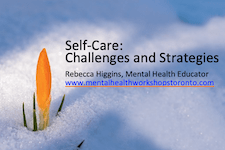Discover financial empowerment resources
Discover financial empowerment resources
From 2019 to 2022, among Indigenous people aged 18 years and older, 54.3% of Inuit reported having a regular healthcare provider, along with 81.4% of First Nations people living off reserve and 84.5% of Métis. This is compared with 85.7% of the non-Indigenous adult population. Released...

In 2024, close to half of First Nations people living off reserve (45%) and Métis (44%), and more than half of Inuit (54%) (all aged 15 years and older) reported that it was "difficult" or "very difficult" in the 12 months preceding the survey to meet their financial needs in terms of...

When you buy life or health insurance, FSRA protects you by ensuring insurance companies and life and health agents are properly licensed to operate in Ontario and that they comply with the Ontario Insurance Act. Learn more by visiting the Financial Services Regulatory Authority of Ontario...

In this 8th episode of the "What the Food?!" webinar series, we hear from Randy Hatfield, Executive Director at the Saint John Human Development Council about affording food in today's economy - the living wage vs minimum wage, the Consumer Price Index, rental rates and the salary requirements to...

In partnership, Daily Bread Food Bank and North York Harvest Food Bank have released Who’s Hungry 2024 – an annual profile of poverty and food insecurity in the City of Toronto. In the last year, there were 3.49 million client visits to Toronto food banks – nearly 1 million more visits...

In 2023, 22.9% of people in the ten provinces lived in a food-insecure household. That amounts to 8.7 million people, including 2.1 million children, living in households that struggled to afford the food they need. With another year of rising food insecurity, the percentage of people affected is...
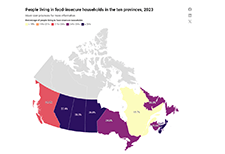
Every day in Canada, nearly 1 in 4 people worry about eating, compromise on the quantity and quality of their groceries and/or go without food due to financial constraints. Food insecurity disproportionately impacts some groups, including Indigenous and racialized peoples, people with...

Wealth inequality, health and health equity is one in a series of ongoing think pieces from Wellesley Institute that aim to stimulate ideas and new conversations to create a fairer and healthier tomorrow. Canadians are struggling with the rising cost of living. A national survey in November 2023...

In Canada and the United States, approximately 1 in 5 children live in poverty, contributing to poor health outcomes. Families with children with chronic illness may experience additional financial stress related to hospitalization. This study aimed to capture experiences of financial needs and...

Food Banks Canada's all-new Poverty Report Cards initiative grades how poverty reduction efforts are going in the provincial, territorial, and federal governments. The report cards will help policymakers and decision-makers at all levels of government gauge their performance in the fight against...
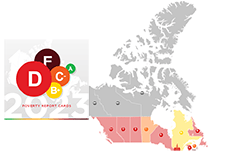
To learn more about Canada's food and seed security, read the SeedChange Impact report 2022. This report shows how and where donations were distributed in 2022, the impact of their work and the global projects they are involved...
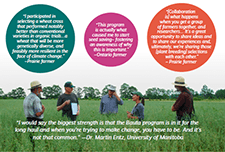
Food insecurity is a significant public health problem for Indigenous peoples in Canada. A comprehensive literature review is needed to organize the evidence according to the 4 pillars of food security (i.e., availability, access, utilization, and stability) and identify gaps in the published...
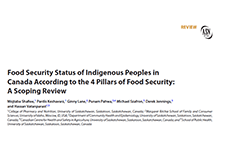
Charitable food programs have been the primary response to household food insecurity in Canada since the 1980s. Yet, for as long as there has been systematic monitoring, there has been no meaningful decline in the prevalence of household food insecurity. Based on the most recent data from...

Drawing on survey and interview data, as well as data from Daily Bread and North York Harvest’s member agencies, the 2022 Who’s Hungry report examines trends in food bank use and food insecurity over the past year in relation to three core areas: income and employment, housing, and the cost of...
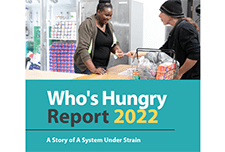
Food insecurity—the inadequate access to food due to financial constraints—affects 1 in 6 households in Canada, with serious health implications. Family benefit programs supplementing income have shown potential in mitigating the risk of food insecurity, but there is little understanding of...

A research collaboration between PROOF (Food Insecurity and Policy Research) and FoodShare reveals that Black households are 3.56 times more likely to be food insecure than white households. Learn more about the relationship between food banks and food insecurity in Canada in this 2019...

Building the Case provides evidence for the federal government to urgently step up to support single, working-age adults in Canada. This group experiences Canada’s highest and deepest rates of poverty and some of the country’s highest rates of food insecurity. By analyzing publicly...

Social prescribing is a means of connecting people to a range of community services and activities to improve their health and well-being. These services vary based on each person’s needs and interests, and can include food subsidies, transportation, fitness classes, arts and culture engagement,...
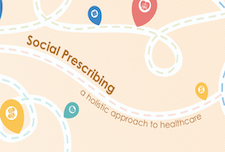
The Canadian Institute for Social Prescribing (CISP) is a new national hub to link people and share practices that connect people to community-based supports and services that can help improve their health and...

The following snapshot aims to highlight how Anti-Black racism and systemic discrimination are key drivers of health inequalities faced by diverse Black Canadian communities. Evidence of institutional discrimination in key determinants of health is also presented, including education, income, and...

Food insecurity – inadequate or uncertain access to food because of financial constraints – is a serious public health problem in Canada, and all indications are that the problem is getting worse. Drawing on data for 103,500 households from Statistics Canada’s Canadian Community Health...

Financial stress is the root cause of many adverse health outcomes among poor and low-income children and their families, yet few clinical interventions have been developed to improve health by directly addressing patient and family finances. Medical-Financial Partnerships (MFPs) are novel...

A toolkit for parents/caregivers with a child with a disability ages 2 to 10, containing: An everyday childhood action guide Early planning priorities for parents with a child with a disability (upcoming webcast) Accessing financial resources for a young child with a disability (upcoming...

A survey led by researchers at Western University explores the experiences of trans and non-binary Canadians during the COVID-19 pandemic. Initial research from the Trans PULSE Canada survey highlighted that many trans and non-binary Canadians will avoid seeking necessary health care because of a...
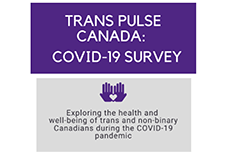
As practitioners continue to deliver important client-centred services during the COVID-19 pandemic, this can be accompanied by feelings of burnout or compassion fatigue. It can be helpful to establish or renew your practice of self-care, fostering your own physical and mental health during...
